
Dili: The Gateway to Timor-Leste’s Untouched Beauty
Dili, the capital of Timor-Leste, is a city where tradition meets modernity. Nestled along the northern coast, Dili offers a blend of stunning landscapes and rich cultural heritage. The city’s waterfront is a perfect place to start your adventure, with its picturesque sunsets and bustling local markets. You can stroll along the palm-fringed beaches or take a dip in the crystal-clear waters of the Timor Sea. The waterfront is also home to many cafes and restaurants where you can savor local delicacies. A visit to Dili is incomplete without exploring its historical sites. The Santa Cruz Cemetery is a poignant reminder of the country’s turbulent past and a symbol of resilience. The Cristo Rei statue, standing tall on a hilltop, offers panoramic views of the city and the sea. For a deeper understanding of Timor-Leste’s history, the Resistance Museum and Archives provide insightful exhibits on the struggle for independence. Dili is also a gateway to some of the most pristine natural attractions in Timor-Leste. Just a short drive from the city, you can find lush mountains, serene lakes, and vibrant coral reefs. Whether you are a nature lover, history buff, or just looking for a unique travel experience, Dili has something to offer. The warm hospitality of the locals and the unspoiled beauty of the surroundings make it a must-visit destination for any traveler.
Local tips in Dili
- Visit the local markets early in the morning to experience the vibrant atmosphere and get fresh produce.
- Wear comfortable shoes if you plan to hike up to the Cristo Rei statue; the path can be steep and uneven.
- Try the local coffee; Timor-Leste is known for its rich and flavorful coffee beans.
- Hire a local guide to learn more about the historical significance of sites like the Santa Cruz Cemetery and the Resistance Museum.
- Respect local customs and traditions; dress modestly, especially when visiting religious sites.
Neighbourhoods in Dili
Dili: The Gateway to Timor-Leste’s Untouched Beauty
Dili, the capital of Timor-Leste, is a city where tradition meets modernity. Nestled along the northern coast, Dili offers a blend of stunning landscapes and rich cultural heritage. The city’s waterfront is a perfect place to start your adventure, with its picturesque sunsets and bustling local markets. You can stroll along the palm-fringed beaches or take a dip in the crystal-clear waters of the Timor Sea. The waterfront is also home to many cafes and restaurants where you can savor local delicacies. A visit to Dili is incomplete without exploring its historical sites. The Santa Cruz Cemetery is a poignant reminder of the country’s turbulent past and a symbol of resilience. The Cristo Rei statue, standing tall on a hilltop, offers panoramic views of the city and the sea. For a deeper understanding of Timor-Leste’s history, the Resistance Museum and Archives provide insightful exhibits on the struggle for independence. Dili is also a gateway to some of the most pristine natural attractions in Timor-Leste. Just a short drive from the city, you can find lush mountains, serene lakes, and vibrant coral reefs. Whether you are a nature lover, history buff, or just looking for a unique travel experience, Dili has something to offer. The warm hospitality of the locals and the unspoiled beauty of the surroundings make it a must-visit destination for any traveler.
When is the best time to go to Dili?
Iconic landmarks you can’t miss
Timor Plaza
Discover the vibrant shopping and dining scene at Timor Plaza in Dili, a must-visit for tourists seeking local culture and modern amenities.
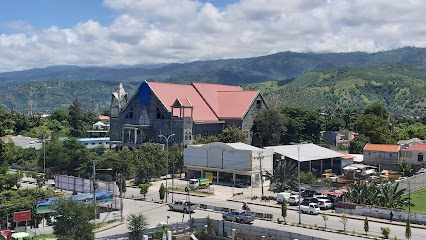
Cristo Rei of Dili
Discover the breathtaking beauty and spiritual significance of Cristo Rei of Dili, a monumental statue offering stunning views and a glimpse into East Timor's soul.
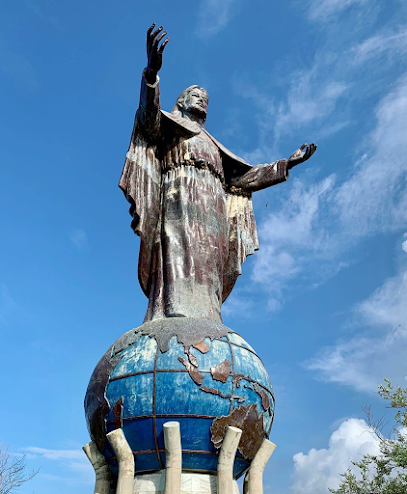
Timorese Resistance Archive & Museum
Discover the resilience of the Timorese people at the Timorese Resistance Archive & Museum in Dili, a poignant journey through history and culture.
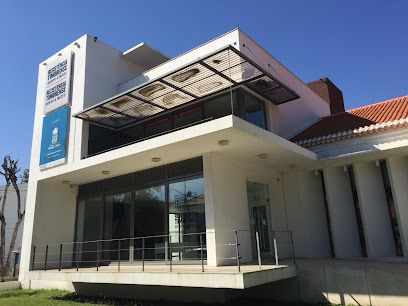
Tais Market
Discover the vibrant Tais Market in Dili, where traditional crafts, delicious street food, and local culture come together in a bustling atmosphere.
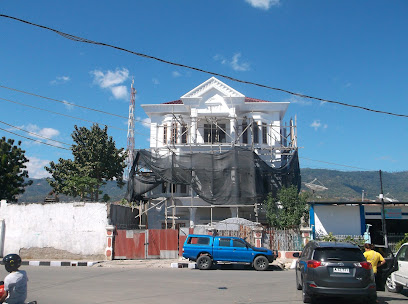
Caz Bar
Discover the flavors of Timor-Leste at Caz Bar in Dili, where local cuisine meets international flair in a stunning setting.
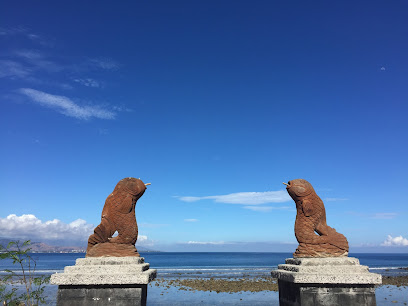
D'City Hotel
Experience comfort and convenience at D'City Hotel in Dili, the perfect base for your Timor-Leste adventure.

Castaway Bar and Restaurant
Experience the vibrant flavors and stunning views at Castaway Bar and Restaurant in Dili, a perfect culinary escape for every traveler.
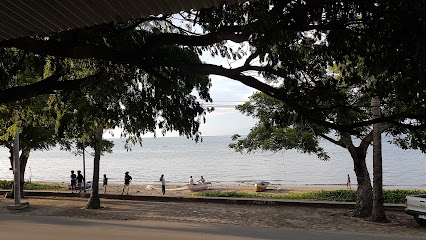
Malinamoc Paradise
Discover the tranquil beauty and luxurious comforts of Malinamoc Paradise, your ultimate resort getaway in Dili, Timor-Leste.
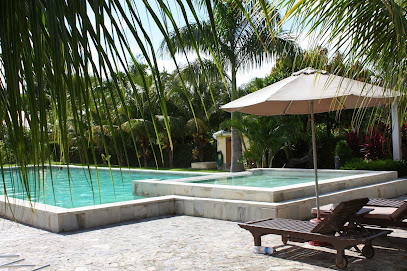
Beach Garden Hotel
Discover tranquility at the Beach Garden Hotel, a picturesque retreat in Dili, where comfort meets stunning ocean views and rich local culture.

Centro Nacional Chega!
Explore Timor-Leste's history at Centro Nacional Chega!, a poignant museum uncovering the nation's struggles and triumphs.
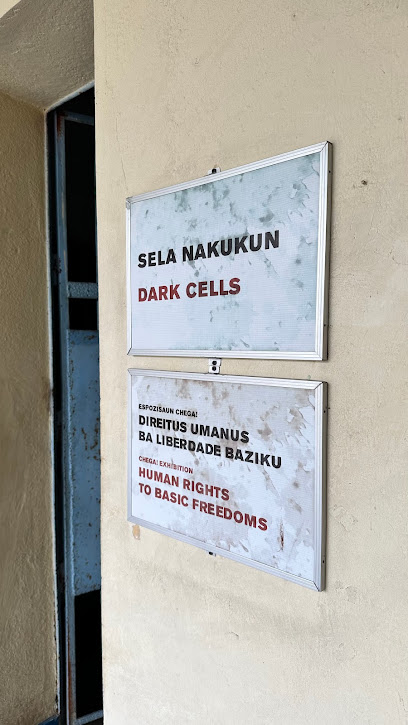
Largo de Lecidere
Explore Largo de Lecidere, a tranquil park in Dili, Timor-Leste, where nature meets culture in a serene urban oasis.
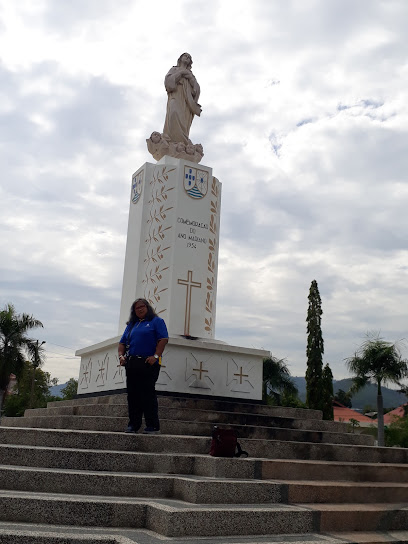
Immaculate Conception Cathedral
Discover the stunning Immaculate Conception Cathedral in Dili, a grand symbol of faith and resilience in Timor-Leste's capital.
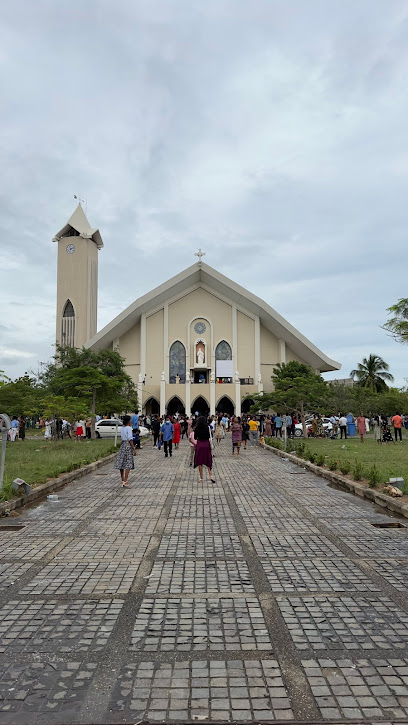
Dive Timor Lorosae
Explore the vibrant marine life of Dili with Dive Timor Lorosae, your gateway to unforgettable SCUBA diving adventures in Timor-Leste.
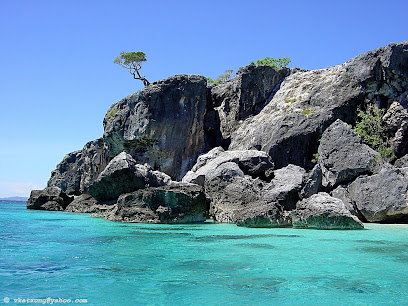
Hotel Esplanada
Experience the vibrant culinary scene at Hotel Esplanada in Dili, where local flavors meet international cuisine in a welcoming atmosphere.
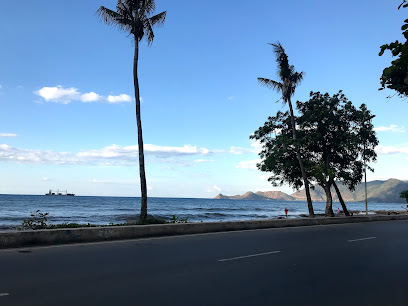
Farol
Explore Farol Beach in Dili, where stunning coastal views, vibrant culture, and unforgettable adventures await every tourist.
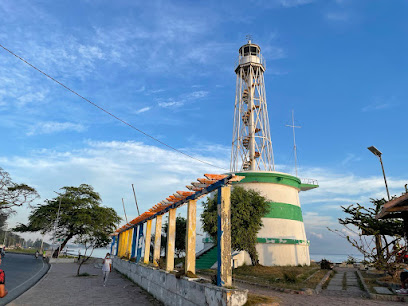
Unmissable attractions to see
Cristo Rei of Dili
Explore the iconic Cristo Rei of Dili, a majestic statue offering stunning ocean views and a glimpse into Timor-Leste's rich cultural heritage.
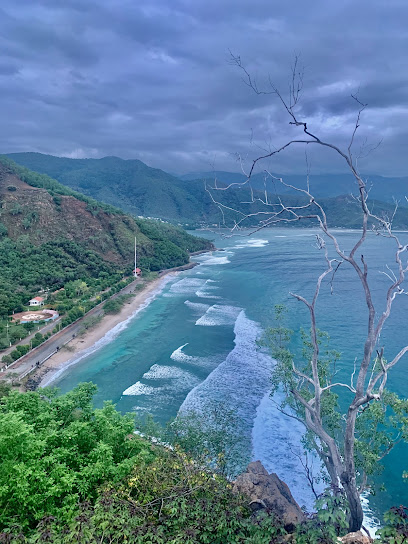
Immaculate Conception Cathedral
Explore the Immaculate Conception Cathedral, a serene sanctuary of faith and beauty in Dili, Timor-Leste, steeped in history and cultural significance.
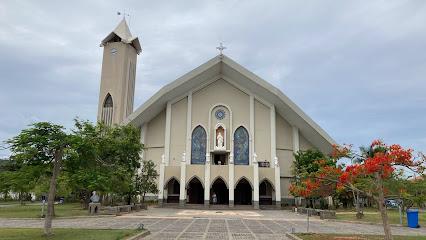
Acrema beach
Discover the serene beauty of Acrema Beach in Dili, Timor-Leste, a perfect spot for relaxation and adventure by the sea.
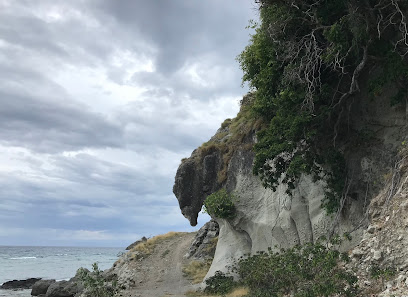
Essential places to dine
Caz Bar
Experience the vibrant flavors of Timor-Leste at Caz Bar, where local cuisine meets international flair in a welcoming atmosphere.
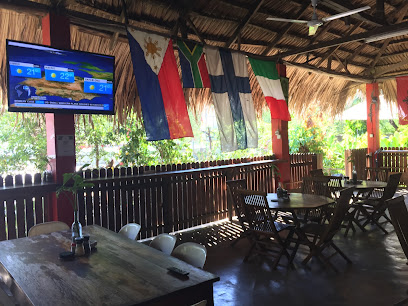
Castaway Bar and Restaurant
Discover culinary bliss at Castaway Bar and Restaurant in Dili - where local flavors meet stunning views in a vibrant atmosphere.
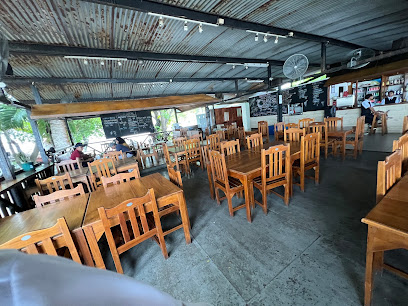
Hotel Esplanada
Experience exquisite dining at Hotel Esplanada in Dili - where local flavors meet international cuisine in an inviting atmosphere.
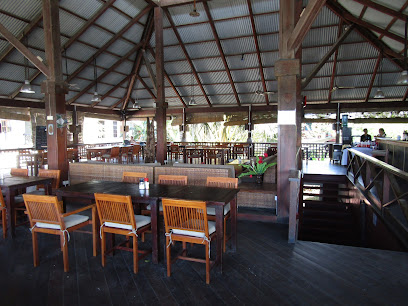
Osteria Italiana
Experience authentic Italian cuisine at Osteria Italiana in Dili, where traditional flavors meet warm hospitality.
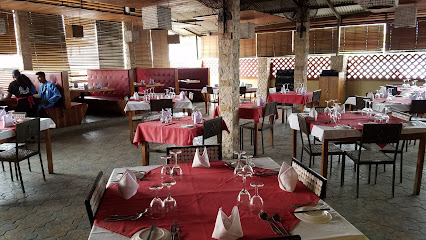
Pro-Ema Restaurant School
Experience the culinary artistry at Pro-Ema Restaurant School in Díli - where every dish tells a story of tradition and innovation.
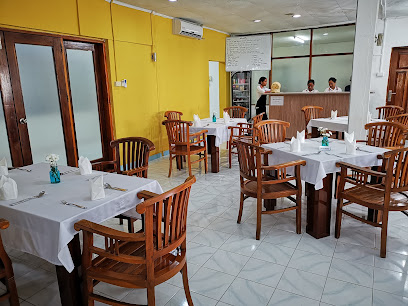
Naris No.1 Korean Restaurant
Experience authentic Korean cuisine at Naris No.1 Restaurant in Dili, where traditional flavors meet exceptional hospitality.
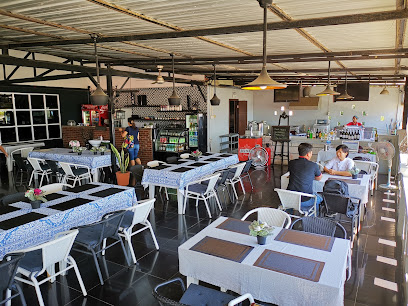
El Legendario
Discover authentic Timorese cuisine at El Legendario in Dili—a must-visit restaurant for travelers seeking local flavors.
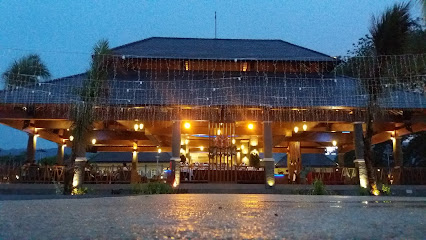
Agora Food Studio
Experience the vibrant flavors of Timor-Leste at Agora Food Studio in Díli – where tradition meets innovation in every dish.
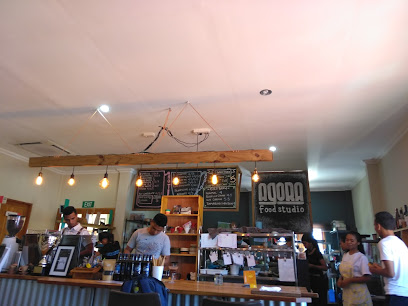
Ocean View Restaurant
Experience exquisite dining at Ocean View Restaurant in Dili—where fresh seafood meets breathtaking ocean views.
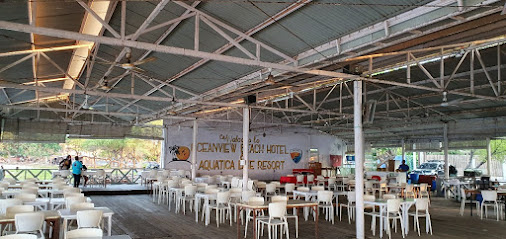
Panorama Restaurant & Sky Bar
Discover breathtaking views and delectable cuisine at Panorama Restaurant & Sky Bar in Dili, where every meal is accompanied by stunning sunsets.
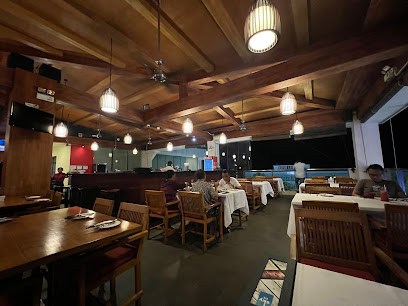
Tito's Restaurant
Experience authentic Portuguese cuisine at Tito's Restaurant in Dili – where tradition meets flavor in every dish.
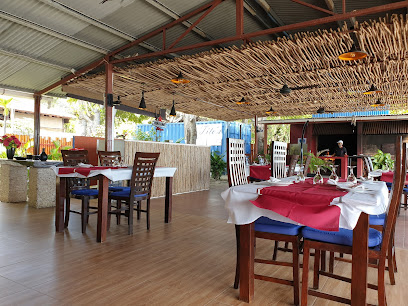
Dilicious Timor
Experience the rich flavors of Timorese cuisine at Dilicious Timor in Dili - a must-visit culinary destination for all tourists.
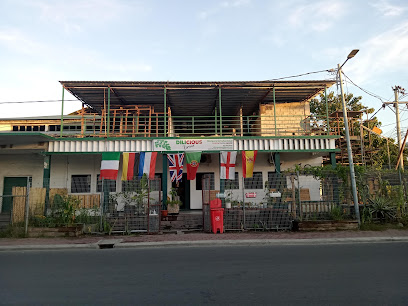
Eastern Burger Restaurant
Discover the vibrant flavors of Chinese cuisine at Eastern Burger Restaurant in Dili - a delightful culinary gem for every traveler.
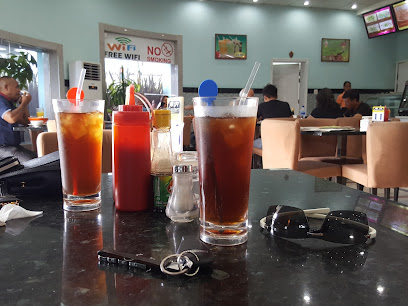
Great Wall Restaurant
Discover authentic flavors at Great Wall Restaurant in Díli - where every dish tells a story!
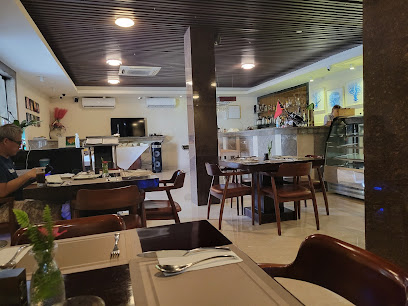
Little Pattaya Restaurant
Experience authentic Thai cuisine at Little Pattaya Restaurant in Dili - a culinary journey filled with vibrant flavors and warm hospitality.
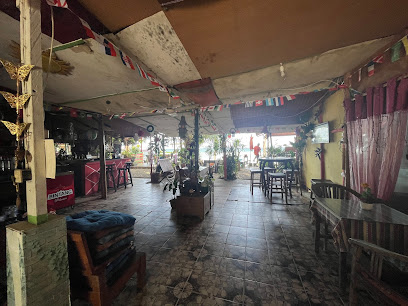
Markets, malls and hidden boutiques
Timor Plaza
Discover Timor Plaza: A vibrant shopping and dining experience in the heart of Dili, offering a taste of local culture and a plethora of shopping options.
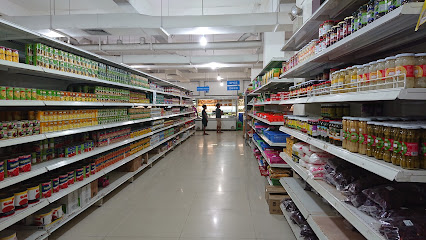
Oil Paintings For Sale
Discover the artistic heart of Dili at Saatchi Art Gallery, where local talent meets vibrant creativity in captivating oil paintings.
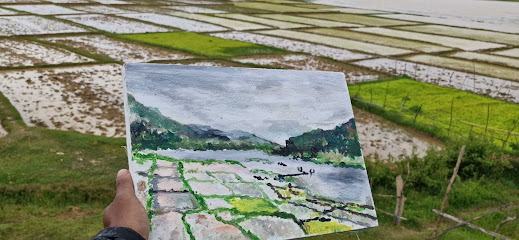
Lita Store
Explore Dili's vibrant shopping scene at Lita Store, a budget-friendly supermarket offering local goods and fresh produce.
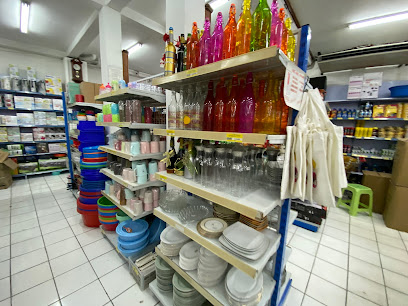
Qulina Supermarket
Discover the flavors of Timor-Leste at Qulina Supermarket, a vibrant grocery store in Dili showcasing local products and culinary delights.
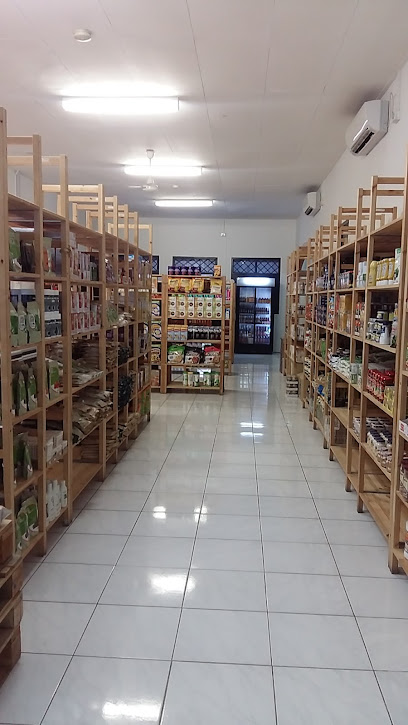
Dili Mart
Discover local flavors and essential items at Dili Mart, the go-to grocery store in Dili, Timor-Leste.
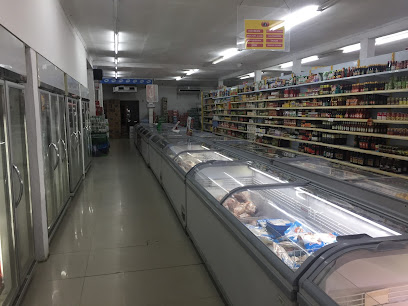
Basic Home Mart
Basic Home Mart: Your go-to grocery store in Dili for local flavors and essentials during your Timorese adventure.
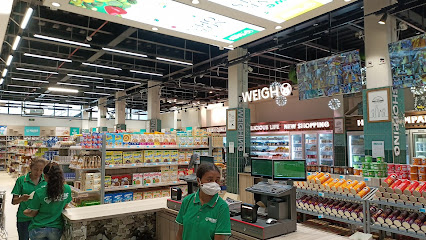
Colmera Shopping Center
Discover local culture and unique shopping experiences at Colmera Shopping Center in the heart of Díli, Timor-Leste.
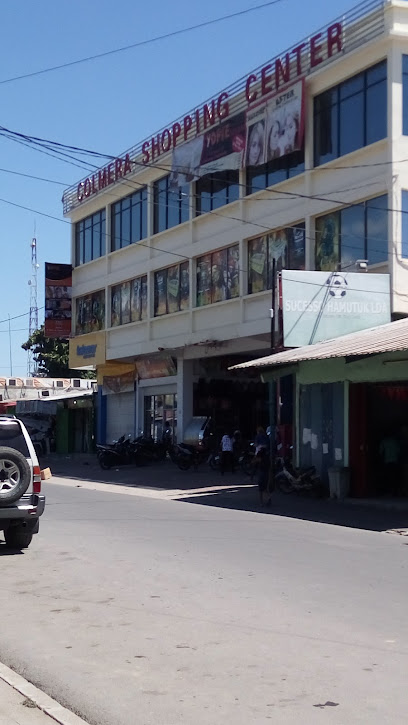
Hard Rock
Explore Hard Rock in Dili: A vibrant music store celebrating local talent and a diverse array of musical treasures.
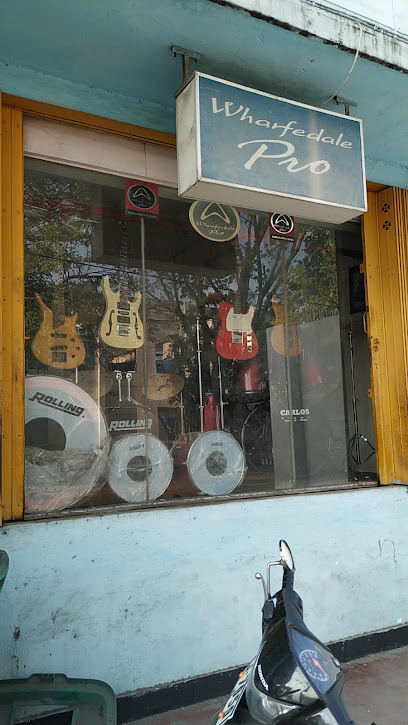
TIO Hobbies & Sports
Explore your passions at Tio Hobbies & Sports in Dili, where adventure meets community in a vibrant hobby store.
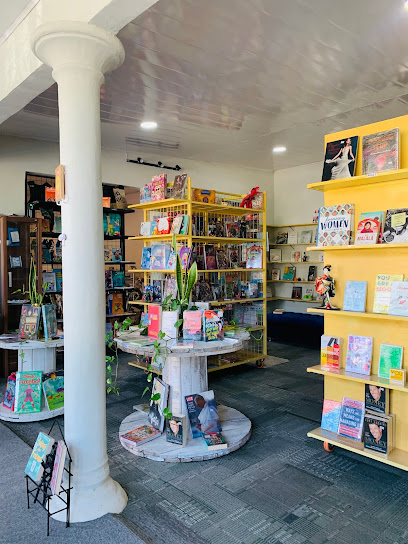
Timor Diak
Discover the essence of Timorese culture at Timor Diak, your go-to store for authentic crafts and souvenirs in Dili.
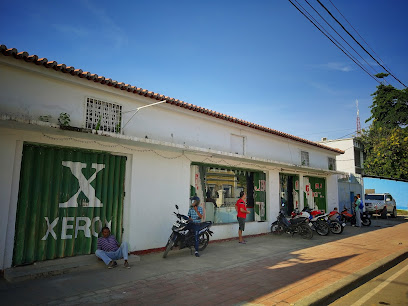
Things and Stories
Explore the heart of Timorese craftsmanship at Things and Stories in Dili, offering unique home goods and souvenirs that tell a story.
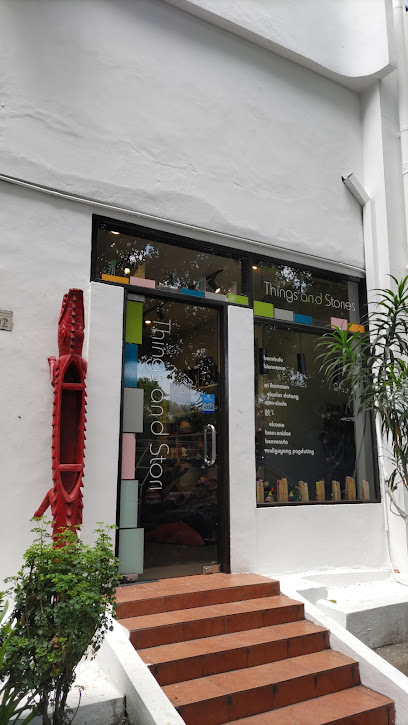
Perly shop
Discover a tech lover's paradise at Perly Shop in Dili, offering quality electronics and local charm.
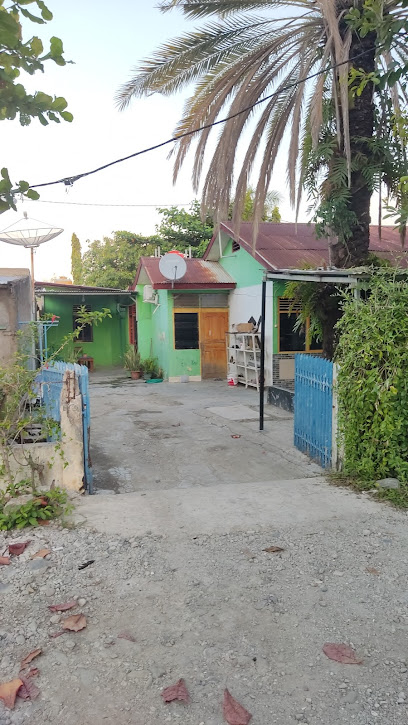
GREAT Bookshop
Discover a literary oasis in Dili at GREAT Bookshop, where books, coffee, and community come together for an enriching experience.
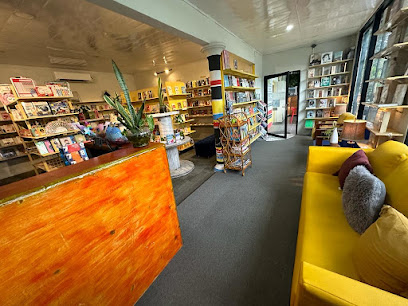
Homemakers Dili
Discover quality home goods and local crafts at Homemakers Dili, where Timorese culture meets exceptional craftsmanship.
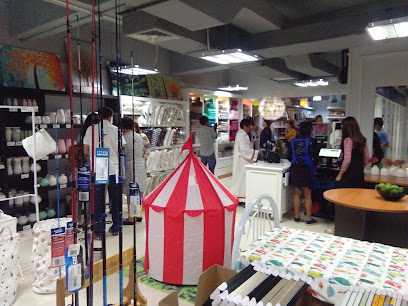
Glow Fashion
Explore unique Timorese fashion at Glow Fashion in Dili, offering stylish clothing and accessories that celebrate the local culture.

Essential bars & hidden hideouts
Castaway Bar and Restaurant
Experience the vibrant flavors and stunning views at Castaway Bar and Restaurant in Dili, where relaxation meets culinary excellence.
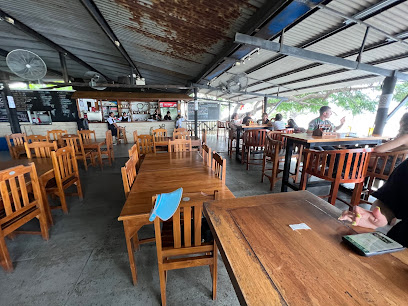
Spooners Bar and Grill
Experience the vibrant atmosphere and delicious cuisine at Spooners Bar and Grill in Díli, a culinary gem for tourists and locals alike.
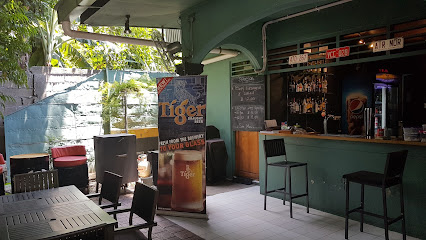
Dili Club and Pizza
Experience the vibrant flavors of Italy at Dili Club and Pizza, a lively bar and restaurant in the heart of Díli, Timor-Leste.
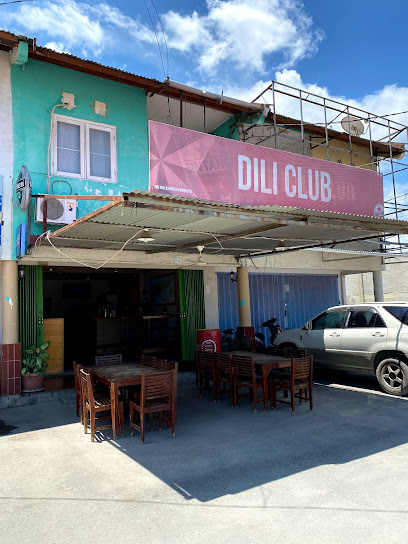
Black Box Cafe and Bar
Experience the vibrant nightlife at Black Box Cafe and Bar in Díli, where local flavors and a lively atmosphere await every visitor.
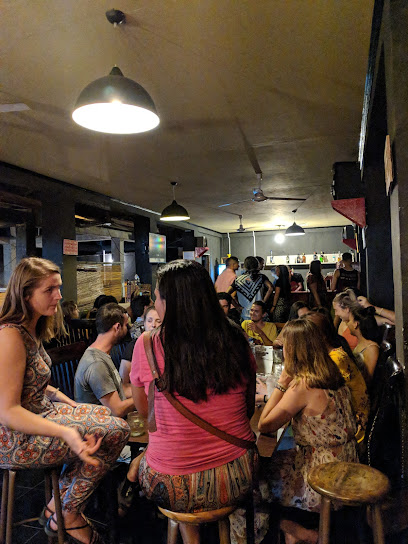
Tower Cafe & Bar
Discover the charm of Tower Cafe & Bar in Dili, where stunning views and local flavors come together for an unforgettable experience.
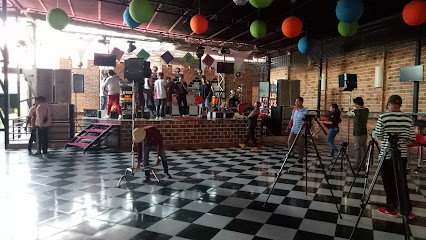
Olé Bar & Tapas
Discover the lively Olé Bar & Tapas in Díli, where delicious tapas, refreshing drinks, and vibrant ambiance await you.
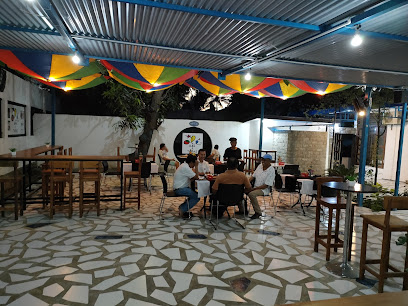
Nova Jar
Experience the vibrant nightlife of Díli at Nova Jar, a lively bar offering a diverse drink selection in a welcoming atmosphere.
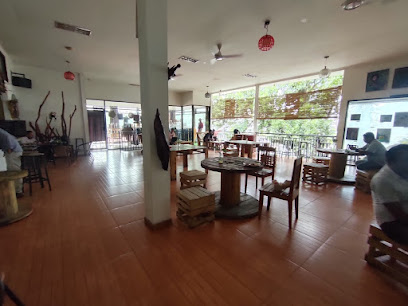
Ponkys Cocktail Lounge
Experience the vibrant nightlife of Dili at Ponkys Cocktail Lounge, where creative cocktails and stunning views create an unforgettable atmosphere.
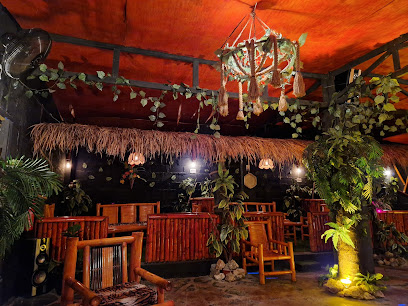
Reggae Bar
Discover the heart of Dili's nightlife at Reggae Bar, where local culture meets vibrant music and refreshing drinks.

Cantinho dos Manos
Experience the vibrant local culture at Cantinho dos Manos, a cozy bar in the heart of Dili, offering delightful drinks and a welcoming atmosphere.
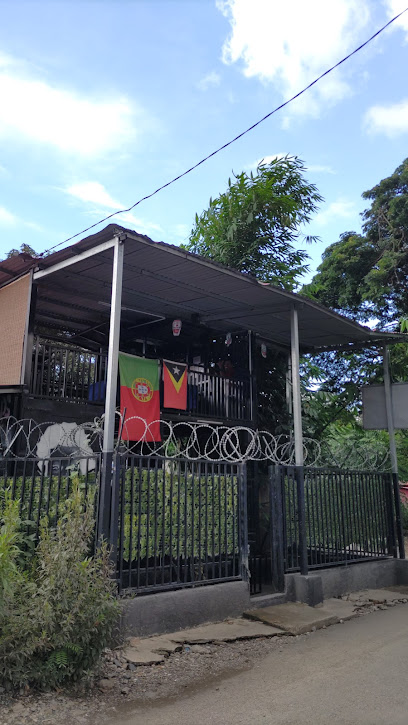
ARMY MADRUGADA
Dive into the vibrant karaoke scene at ARMY MADRUGADA in Díli, where every night is filled with music, laughter, and unforgettable memories.
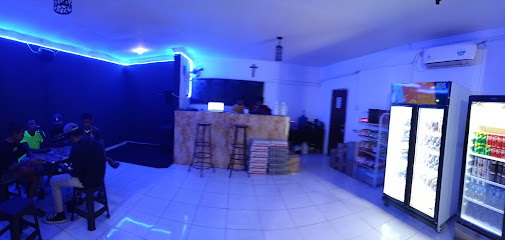
Ni'mia Restaurante & Bar
Discover the lively Ni'mia Restaurante & Bar in Dili, where Timorese flavors meet vibrant social experiences in a welcoming atmosphere.
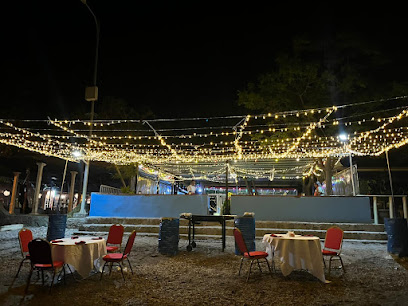
Cervejaria Lidio 15(Bar)
Experience the vibrant atmosphere and local flavors at Cervejaria Lidio 15, a must-visit bar in Dili, Timor-Leste.
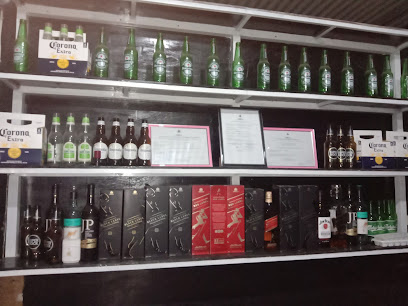
Amaral Bar
Experience the lively spirit of Amaral Bar in Díli, where drinks flow and local culture thrives amidst a vibrant social atmosphere.

Barbosa
Discover Barbosa in Dili: A vibrant bar experience blending local culture, refreshing drinks, and a lively atmosphere for every traveler.

Local Phrases
-
- HelloBondia
[bon-dee-ah] - GoodbyeAdeus
[ah-day-oos] - YesSim
[seem] - NoLae
[lie] - Please/You're welcomeFavor
[fah-vor] - Thank youObrigadu
[oh-bree-gah-doo] - Excuse me/SorryDeskulpa
[des-kool-pah] - How are you?Oinsá ita nia situasaun?
[oy-n-sah ee-tah nee-ah see-too-sah-oon] - Fine. And you?Diak. Oinsá ho ita nia?
[dee-ahk oy-n-sah hoh ee-tah nee-ah] - Do you speak English?Ita bele hatene Ingles?
[ee-tah beh-leh hah-teh-neh een-glehs] - I don't understandHau la kompriende
[how lah kohm-pree-en-deh]
- HelloBondia
-
- I'd like to see the menu, pleaseHau hakarak hare menu, favor
[how hah-kah-rak hah-reh menu fah-vor] - I don't eat meatHau la manan karne
[how lah mah-nahn kahr-neh] - Cheers!Saude!
[sow-deh] - I would like to pay, pleaseHau hakarak selu, favor
[how hah-kah-rak seh-loo fah-vor]
- I'd like to see the menu, pleaseHau hakarak hare menu, favor
-
- Help!Ajuda!
[ah-joo-dah] - Go away!Ba oin
[bah oh-een] - Call the Police!Liga ba Polisia!
[lee-gah bah poh-lee-see-ah] - Call a doctor!Liga ba dotor!
[lee-gah bah doh-tohr] - I'm lostHau hasoru
[how hah-soh-roo] - I'm illHau moras
[how moh-rahs]
- Help!Ajuda!
-
- I'd like to buy...Hau hakarak sosa...
[how hah-kah-rak soh-sah] - I'm just lookingHau deit hakerek
[how dayt hah-keh-rek] - How much is it?Kuantu ida ne'e?
[kwahn-too ee-dah neh-eh] - That's too expensiveNe'e barak liu
[neh-eh bah-rak lee-oo] - Can you lower the price?Ita bele hakat lais merkadu?
[ee-tah beh-leh hah-kaht lice mehr-kah-doo]
- I'd like to buy...Hau hakarak sosa...
-
- What time is it?Oras ne'e hira?
[oh-rahs neh-eh hee-rah] - It's one o'clockOras ida
[oh-rahs ee-dah] - Half past (10)Oras nulu resin
[oh-rahs noo-loo reh-seen] - MorningTuku loron
[too-koo loh-rohn] - AfternoonTuku tarde
[too-koo tahr-deh] - EveningTuku kalan
[too-koo kah-lahn] - YesterdayHoriseik
[hoh-ree-sake] - TodayOhin loron
[oh-heen loh-rohn] - TomorrowAban
[ah-bahn] - 1Ida
[ee-dah] - 2Rua
[roo-ah] - 3Tolu
[toh-loo] - 4Haat
[hah-at] - 5Lima
[lee-mah] - 6Neen
[neh-ehn] - 7Hitu
[hee-too] - 8Walu
[wah-loo] - 9Sia
[see-ah] - 10Nulu
[noo-loo]
- What time is it?Oras ne'e hira?
-
- Where's a/the...?Sira iha nebe...?
[see-rah ee-hah neh-beh] - What's the address?Endereçu saida ne'e?
[ehn-deh-reh-soo sah-ee-dah neh-eh] - Can you show me (on the map)?Ita bele hatudu hau (iha mapa)?
[ee-tah beh-leh hah-too-doo how (ee-hah mah-pah)] - When's the next (bus)?Bainhira bus foun ne'e?
[bah-ee-nee-rah boos foun neh-eh] - A ticket (to ....)Bilhete (ba ....)
[beel-yeh-teh (bah)]
- Where's a/the...?Sira iha nebe...?
History of Dili
-
Dili, the capital city of Timor-Leste, was founded by the Portuguese in 1520. It became the administrative center of Portuguese Timor and played a crucial role in the colonial administration.
-
During World War II, Dili was occupied by Japanese forces from 1942 to 1945. This period was marked by intense conflict and hardship for the local population, as Timor-Leste became a battleground between Allied and Japanese forces.
-
In 1975, following a brief period of independence, Timor-Leste was invaded by Indonesia. Dili became the center of Indonesian military operations and administration until the country's eventual independence in 2002.
-
One of the most significant and tragic events in Dili's modern history is the Santa Cruz Massacre. On November 12, 1991, Indonesian troops opened fire on a peaceful protest at the Santa Cruz Cemetery in Dili, killing over 250 people. This event drew international attention and galvanized the global movement for Timor-Leste's independence.
-
In 1999, a United Nations-sponsored referendum was held in Dili, where the majority of Timorese voted for independence from Indonesia. The subsequent violence and destruction led to a UN intervention, which eventually paved the way for Timor-Leste's full independence in 2002.
-
Dili became the capital of the newly independent Democratic Republic of Timor-Leste on May 20, 2002. The city's restoration marked the beginning of a new era, as it started rebuilding and developing after decades of conflict and occupation.
-
Dili is a melting pot of various cultural influences, including Portuguese, Indonesian, and indigenous Timorese traditions. The city is known for its vibrant festivals, traditional dances, and crafts, which reflect the rich cultural heritage of Timor-Leste.
-
Dili is home to several significant landmarks that commemorate its historical journey. Notable sites include the Cristo Rei statue, one of the largest Jesus statues in the world, and the Resistance Museum, which offers a detailed account of the country's struggle for independence.
Dili Essentials
-
Dili is the capital city of Timor-Leste and is accessible primarily by air. Presidente Nicolau Lobato International Airport (DIL) is the main gateway, located about 6 kilometers west of the city center. International flights connect Dili to regional hubs like Darwin, Bali, and Singapore. Alternatively, you can reach Dili by sea via passenger ferries from nearby islands, though this is less common and services can be infrequent.
-
Within Dili, transportation options include taxis, microlets (shared minibuses), and rental cars. Taxis are widely available but make sure to negotiate the fare before starting your journey as meters are not commonly used. Microlets are a budget-friendly option and follow fixed routes, though they can be crowded. For greater flexibility, consider renting a car, but be aware of local driving conditions and traffic rules. Bicycles and motorbikes are also popular for getting around the city.
-
The official currency of Timor-Leste is the US Dollar (USD). Credit cards are accepted in some hotels, restaurants, and larger stores, but many smaller establishments operate on a cash-only basis. ATMs are available in Dili, though it is wise to carry enough cash for purchases, especially when traveling to more remote areas. It is also advisable to carry smaller denominations, as change for larger bills can sometimes be hard to come by.
-
Dili is generally safe for tourists, but it is advisable to exercise common sense and caution. Avoid walking alone at night, especially in poorly lit areas. Neighborhoods like Comoro and Becora have had occasional reports of petty crime targeting tourists, so avoid displaying expensive items and keep your belongings secure. Always use registered taxis and avoid accepting rides from strangers.
-
In case of an emergency, dial 112 for police, fire, and medical assistance. The main hospital in Dili is Guido Valadares National Hospital, which provides emergency medical services. It is recommended to have travel insurance that covers medical emergencies. For minor health issues, several pharmacies are available throughout the city. The Australian Embassy can also offer assistance to Australian citizens in emergencies.
-
Fashion: Do dress modestly, especially when visiting religious sites or rural areas. Avoid wearing revealing clothing. Religion: Do respect local customs and traditions. Always remove your shoes before entering a church or someone's home. Public Transport: Do be respectful and patient. Give up your seat to elderly passengers and avoid eating or drinking on public transport. Greetings: Do greet people with a handshake and a smile. A slight bow of the head is a sign of respect. Eating & Drinking: Do try local delicacies and accept food offerings graciously. Don't refuse hospitality, as it is considered impolite.
-
To experience Dili like a local, visit the Tais Market for traditional textiles and handicrafts. Engage with locals, who are often friendly and happy to share their culture and history. Don't miss a visit to the Cristo Rei statue for panoramic views of the city and coastline. For a unique culinary experience, try the local street food, especially at the night markets. If you have time, take a day trip to Atauro Island for snorkeling and diving in pristine waters.
Trending Landmark in Dili
Nearby Cities to Dili
-
Things To Do in Aileu
-
Things To Do in Gleno
-
Things To Do in Ermera
-
Things To Do in Same
-
Things To Do in Bobonaro
-
Things To Do in Suai
-
Things To Do in Baucau
-
Things To Do in Lospalos
-
Things To Do in Darwin
-
Things To Do in Makassar
-
Things To Do in Manado
-
Things To Do in Bali
-
Things To Do in Balikpapan
-
Things To Do in Surabaya
-
Things To Do in Yogyakarta














